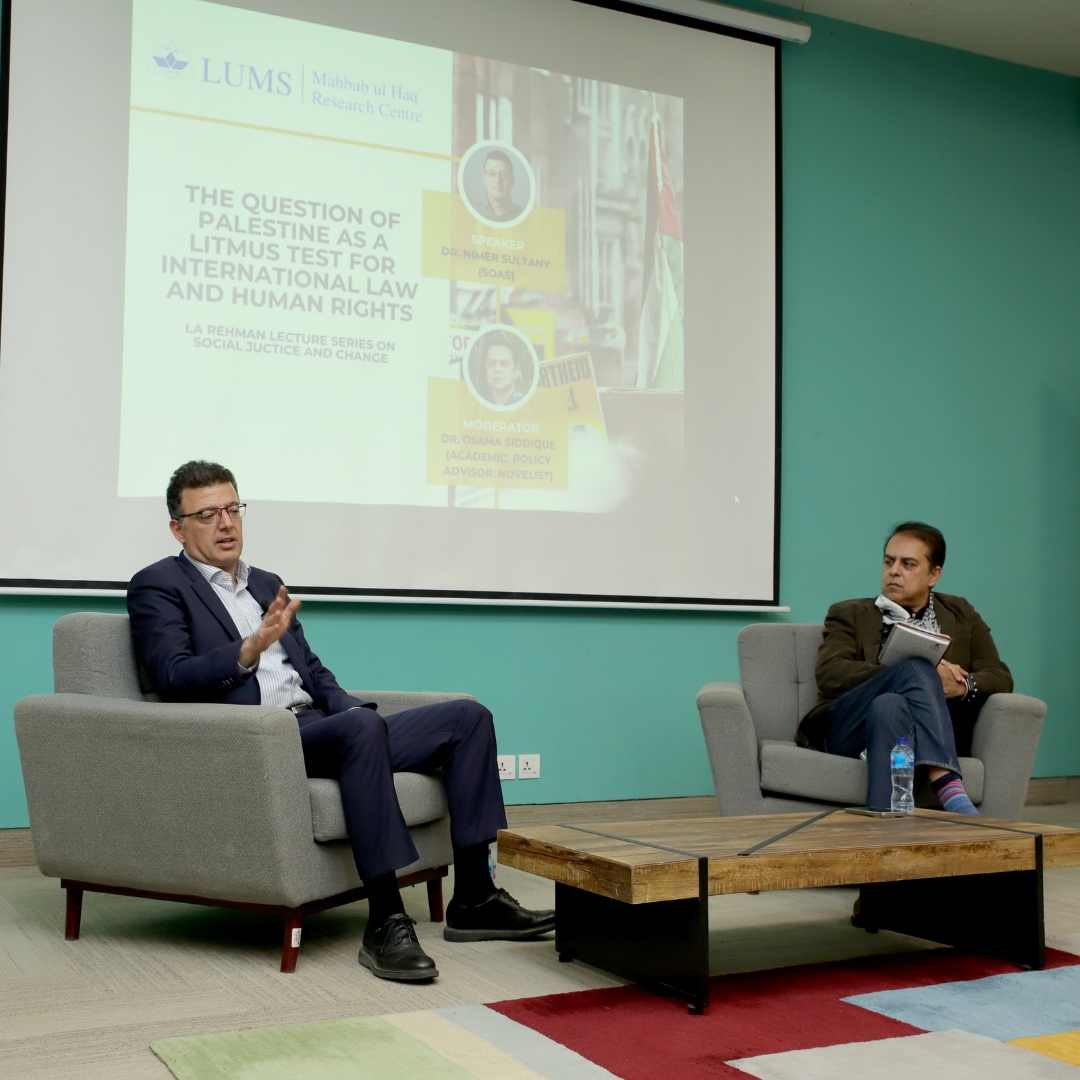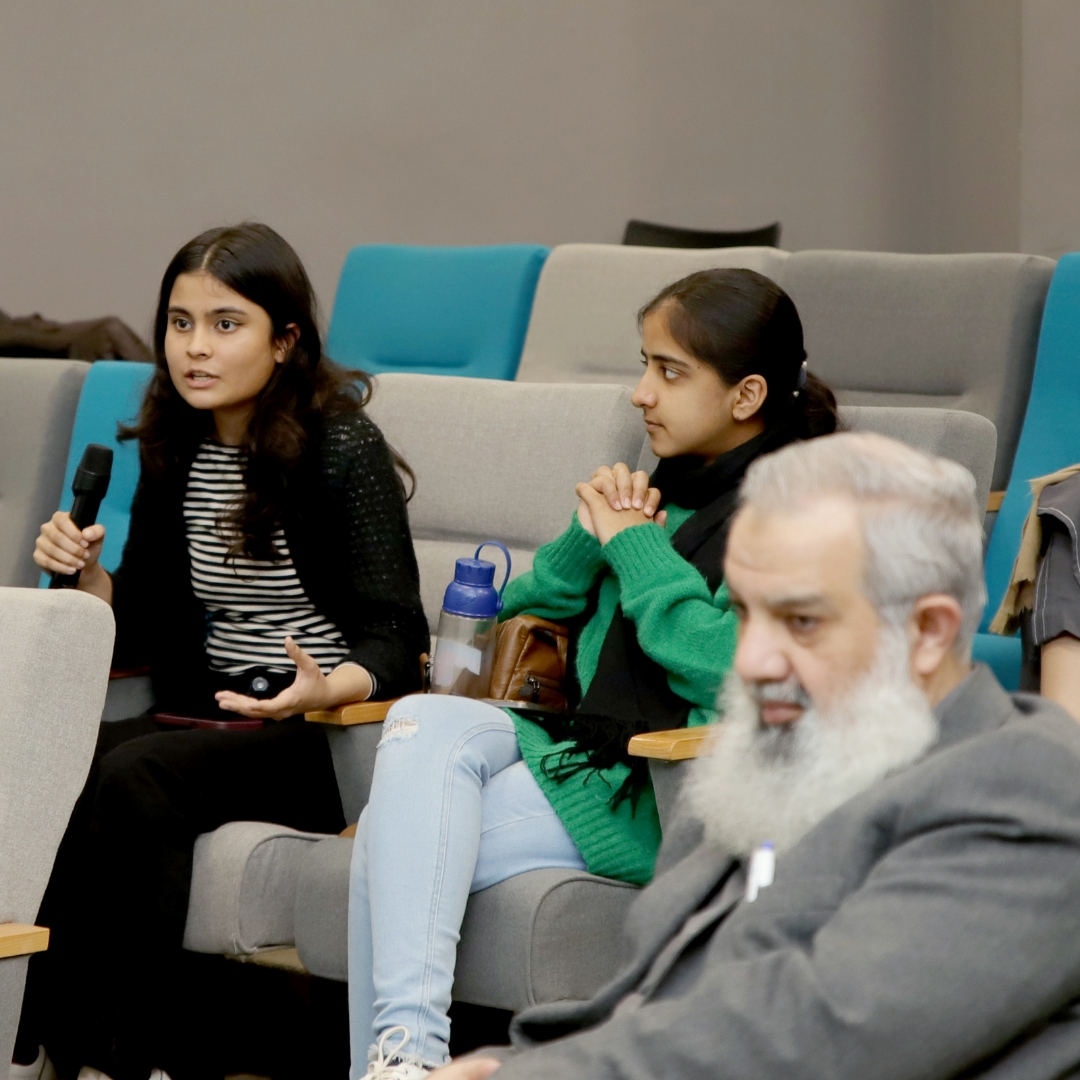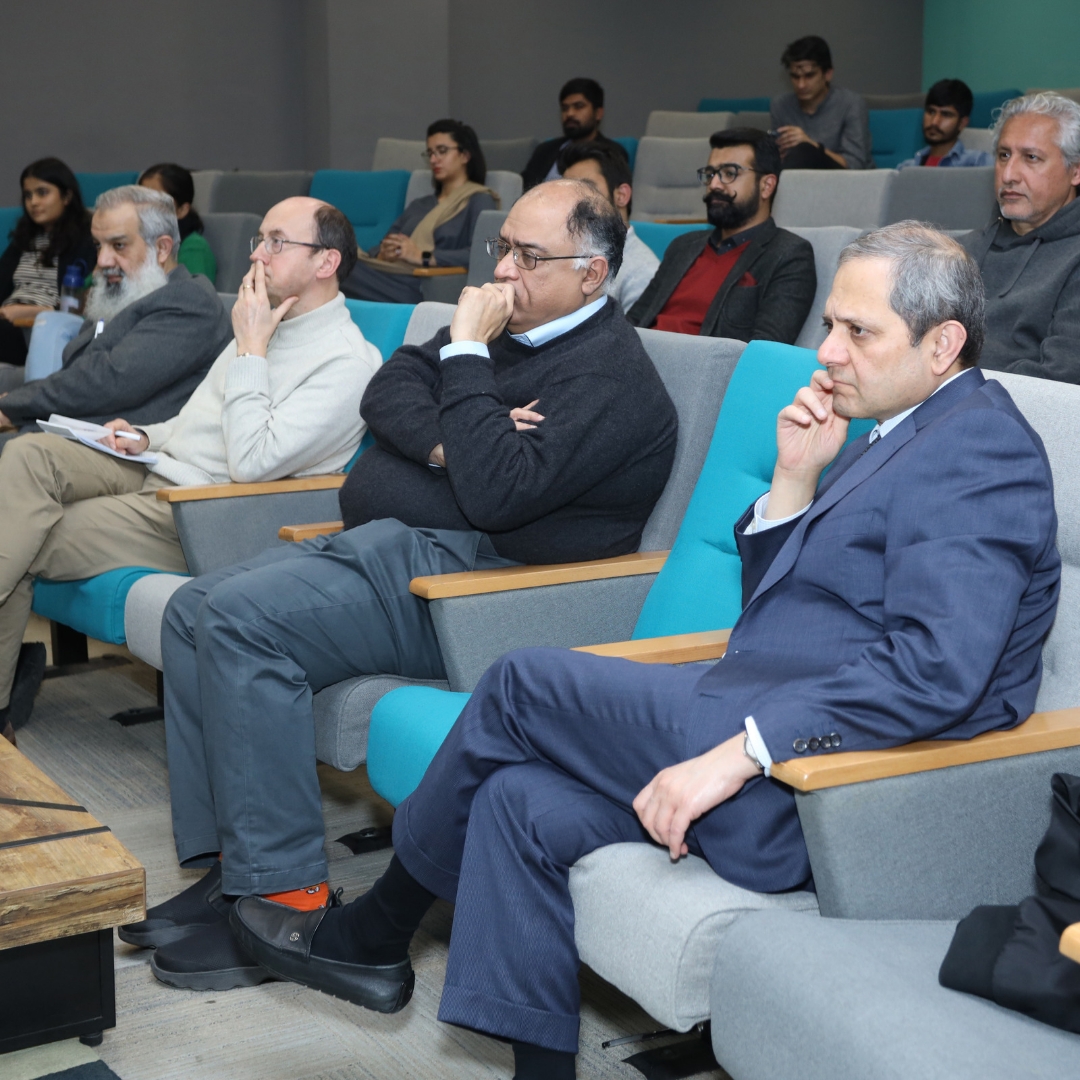The Question of Palestine as a Litmus Test for International Law and Human Rights.
This talk is part of the I. A. Rehman Lecture Series on Social Justice and Change at MHRC. It aims to unpack the paradoxical movement of recent human rights discourse in light of Palestine’s plight. By positioning the Question of Palestine as a ‘litmus test’ for international law and human rights, Dr. Nimer Sultany highlights the systematic and institutionalized nature of Israeli oppression and domination facilitated via blind spots in the application of international human rights law.
For more context on recent events related to the International Court of Justice proceedings, we would like to direct the audience to this thread. Please see the event details below:
The Question of Palestine as a Litmus Test for International Law and Human Rights.
Speaker: Dr. Nimer Sultany (SOAS)
Moderator: Dr. Osama Siddique (Academic. Policy Advisor. Novelist.)
Event Day and Date: Monday, 12th February, 2024
Event Time: 5 PM - 7 PM
Event Location: NICL Auditorium, Basement SSE (LUMS).
Dr. Nimer Sultany (Speaker):
Dr Nimer Sultany is Reader in Public Law at SOAS. He holds a Doctor of Juridical Science degree from Harvard Law School and was the recipient of the British Academy Fellowship (2016/17) and a Postdoctoral Fellowship at SUNY Buffalo Law School (2012/13).
He serves as the Editor-in-Chief of The Palestine Yearbook of International Law. Before joining SOAS, he practiced human rights law in Israel/Palestine and was the director of the Political Monitoring Project at Mada al-Carmel—The Arab Centre for Applied Social Research. He published extensively on constitutional theory, comparative constitutionalism, and Israeli jurisprudence.
His book Law and Revolution: Legitimacy and Constitutionalism After the Arab Spring (Oxford University Press, 2017) won the 2018 Book Prize awarded by the International Society of Public Law and the 2018 Peter Birks Prize for Outstanding Legal Scholarship awarded by the Society of Legal Scholars.
Dr. Osama Siddique (Moderator):
Dr. Siddique is currently an Associate Fellow at the Institute for Development & Economic Alternatives (IDEAS), Founder and Executive Director of the Law and Policy Research Network (LPRN), and Chief Executive of Avante Development Services (ADS). He has authored and co-authored several widely recognized and respected policy reports, internationally refereed and ranked law journal articles, book chapters in edited volumes, textbooks, and other publications.
He was the inaugural Henry J. Steiner Visiting Professor in Human Rights at Harvard Law School in 2016. He serves on the senior faculty of the Institute of Global Law and Policy (IGLP) at Harvard. Dr. Siddique holds an LLM and Doctor of Juridical Science degree from Harvard Law School, was a Rhodes Scholar at Oxford, and has an MBA from LUMS.
His book “Pakistan’s Experience with Formal Law: An Alien Justice (Cambridge University Press: 2013)” was declared Best Non-Fiction Book of the Year at the Karachi Literature Festival 2014 and awarded the American Institute of Pakistan Studies (AIPS) Annual Book Prize 2014-2015. Penguin Random House, India published his debut novel ‘Snuffing Out the Moon’ in 2017 under its prestigious Hamish Hamilton imprint.
Insights From the Event:
Dr. Nimer Sultany (SOAS), in conversation with Dr. Osama Siddique, presented a critical perspective to understanding the Palestinian Question. Using a historical and legal lens, he traced the systematic marginalization and control of the Palestinian population. He argued that international law cannot be divorced from politics and vice versa.
Pointing to the support for #Palestine in the UN General Assembly Dr. Nimer argues that the problem is imperialism and not the failure of an amorphous international community to do anything.
He highlighted the legal impossibility of Israel using self-defence in the context of occupied territory; even if the right to self-defence exists, genocide is clearly off limits.
It was shown that international law is a contested terrain; while there is an inextricable link between law and politics and law can be co-opted by the most powerful, we can still use it as a framework to reject #apartheid and political hegemony. In this context, the ICJ ruling is useful, despite its limitations.
Moreover, the ceasefire prism is a somewhat simplistic one whereby it obscures the gross asymmetry of power and also the fact that international legal obligations need to be abided by whether there is a ceasefire or not.
Gallery



Mahbub ul Haq Research Centre at LUMS
Postal Address
LUMS
Sector U, DHA
Lahore Cantt, 54792, Pakistan
Office Hours
Mon. to Fri., 8:30 a.m. to 5:00 p.m.

